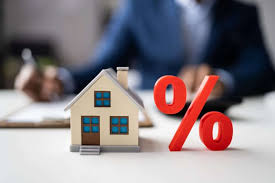

Category: Buy and Sell, Posted at Oct. 25, 2024,
Navigating the mortgage landscape is a crucial first step towards owning a home in Dubai. The city offers a variety of mortgage options, each with its own benefits and considerations. In this blog, we’ll break down the different types of mortgages available in Dubai and explain their repayment terms, helping you make informed decisions.
Here are the most common mortgage types you can find in Dubai:
1. Fixed-Rate Mortgage
A fixed-rate mortgage features a stable interest rate for a specified period, typically up to five years. This provides the benefit of predictable monthly payments, making budgeting easier. However, if market interest rates decline, you might end up paying more than necessary.
2. Variable Rate Mortgage
In contrast to fixed-rate mortgages, a variable rate mortgage's interest rate can fluctuate throughout the loan term, often based on the Emirates Interbank Offered Rate (EIBOR). This type of mortgage may be beneficial if you have the financial flexibility to handle potential increases in repayments, but it can complicate budgeting.
Subtypes of Variable Rate Mortgages:
3. Remortgage
Remortgaging involves acquiring a new loan to replace an existing one, often to secure better interest rates or repayment terms. Be aware that remortgaging can extend the duration of your mortgage and may incur early repayment fees.
4. Offset Mortgage
This type links your mortgage with one or more deposit accounts, allowing you to save on interest payments and pay off your mortgage faster. However, offset mortgages often come with higher interest rates and annual fees compared to traditional options.
5. Investment Mortgage
Investment mortgages are designed for purchasing properties intended for rental income or capital appreciation. Approval criteria can be stricter, and not all lenders offer these mortgages.
6. Non-Resident Mortgage
Available to non-UAE residents, these mortgages often feature shorter loan terms and higher monthly repayments, allowing foreign investors to enter the Dubai property market.
7. Islamic Mortgage
Sharia-compliant mortgages enable buyers to avoid interest payments. Instead, the bank purchases the property and sells it to the buyer at a higher price, payable in installments over an agreed period.
Mortgages in Dubai can also be categorized based on property type:
When securing a mortgage, consider your repayment preferences. The two primary options are:
Understanding down payments and the loan-to-value (LTV) ratio is essential for purchasing a property. The down payment is the upfront cost paid by the buyer, while the LTV ratio indicates the percentage of the property's value that the lender is willing to finance.
For example, if you purchase a property worth AED 200,000 and make a down payment of AED 40,000, your loan amount would be AED 160,000, resulting in an LTV ratio of 80% (AED 160,000 loan divided by AED 200,000 property value).
In Dubai, the down payment requirements are as follows:
The LTV ratio typically stands at 80% for UAE nationals and 85% for expatriates.
Understanding the various mortgage options in Dubai is vital for aspiring homeowners. By exploring the types of mortgages, repayment options, and down payment requirements, you can make informed decisions that align with your financial goals. Always consult with financial advisors or mortgage specialists to ensure you choose the best option for your needs.
and receive latest news and events in inbox